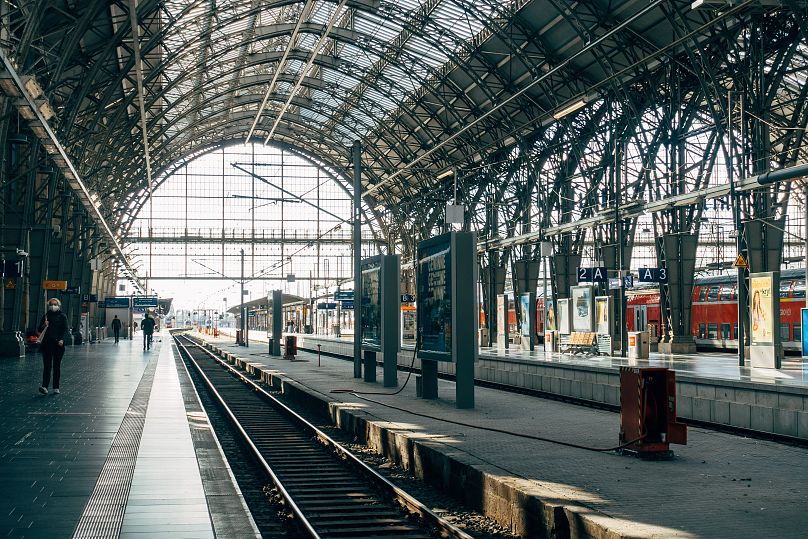From accommodation to what to pack, here’s your definitive guide to travelling without hurting the planet.
 ADVERTISEMENT
ADVERTISEMENT
For many, travel is an experience we simply cannot pass up. Whether it's being reunited with loved ones or finally getting the opportunity to experience a destination you have only dreamed of, it is something many of us long for.
In spite of its unsustainable elements, it is unrealistic to suggest that we can end all travel for the foreseeable future. Particularly when many of us have missed out over this past year.
So, if we are going to travel, what choices can we make to do it more sustainably? How can we remain conscious of our environmental impact and what are the best ways to reduce it?
Whether it's getting to your destination, choosing accommodation, or exploring a new area, there are a myriad of ways to make sustainable travel possible.
Where should I travel to if I want to value sustainability?
As governments across the world begin to recognise the impact of climate change, more nations are prioritising sustainability. With this in mind, climate-conscious travellers can seek out these destinations with top environmental credentials.
According to the Climate Change Performance Index for 2021, Sweden, the UK and Denmark are ranked highest for climate action. Although these countries are known for sustainability, it is still possible to adopt sustainable practices across a variety of destinations, regardless of their policies.
What are the best ways to travel to my location sustainably?
Flying still remains one of the most harmful forms of travel. A return flight from London to Cape Town generates roughly the same amount of CO2 emissions, per passenger, as it would take to heat the average home for a year.
Although flights can be carbon offset, with passengers paying more on tickets to invest in environmental projects which reduce carbon emissions, this doesn’t entirely solve the issue. With an abysmally low proportion of airlines offering this service, it remains out of reach for most people.
Instead, travellers should turn to other, more low-impact forms of travel. Luckily, Europe is renowned for its vast network of train lines with the infamous high-speed Eurostar acting as the perfect carbon-neutral alternative to explore France, Belgium and the Netherlands.
Regardless of what network you choose, you’ll consistently win out over cars and planes when it comes to reducing carbon emissions. According to the European Environment Agency, rail travel accounts for 14 grams of CO2 emissions per passenger mile, which is dwarfed by the 285 grams generated by air travel, and the 158 grams per passenger mile from journeys in cars.
What sustainable options are available when choosing accommodation?
When it comes to planning accommodation, there are a whole host of options available, with a variety of stays to suit any budget.
For traditionalists, camping has consistently been the most low-impact way of staying the night and the European countryside has a range of accessible campsites and national parks.
However, if you’re planning on opting for a more luxurious sustainable stay, an eco-hotel might just be the answer. Across Europe, unique and resourceful spaces are aplenty, with hotels prioritising low-waste and energy-efficient architectural planning to create beautiful sustainable spaces.
A great example is the Luz Houses in Portugal, which use recycled rainwater and solar panels to reduce water and energy wastage.
How can I reduce my environmental impact when exploring new areas?
When travelling to new areas, it’s important to follow the ethos of ‘leaving a place better than you found it’. When it comes to spending money on your trip, think carefully about where that money is going and how it might serve to benefit local communities.
According to the United Nations Environment Programme, for every €100 spent abroad, only €5 remains in a host community, on average.
So, before travelling to new areas, do your research on the local businesses and organisations you can support while there. Seeking out local restaurants rather than vying for the convenience of fast-food chain restaurants is one example you can try.
What should I bring with me to help reduce my environmental impact?
One of the most common forms of environmental waste through the travel industry is from single-use plastic. A study by Travellers Against Plastic found that adventure travellers use almost 30,000 single-use plastic bottles each year. With statistics like that, there is all the more reason to bring along reusable water bottles and food containers when travelling.
If you’re looking to kit yourself out for a long trek or a camping tour across Europe, companies like Patagonia Provisions offer recyclable and reusable packing for camping essentials. All profits go towards research into reducing the food industry’s impact on climate change.
What sustainable travel companies can I use to help plan my trip?
If you’re keen to plan a sustainable trip, but want some expert advice on how to travel, where to stay and what to do, there are some ingenious travel companies dedicated to planning low-impact travel.
Travel company Contiki specialise in trips for 18-35-year-olds, and off-set all carbon on their future trips by funding forest conservation projects in Australia.
If you’re looking to plan an adventure or group trip, Intrepid is the perfect impact-free option. The company is currently off-setting over 125 per cent of their carbon emissions.











